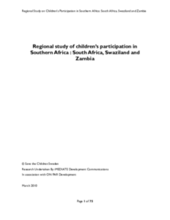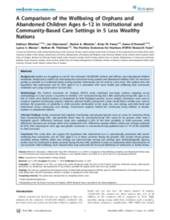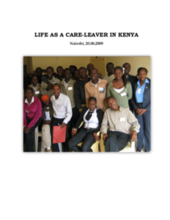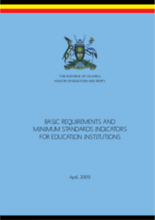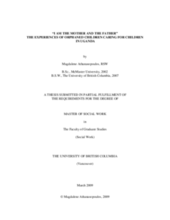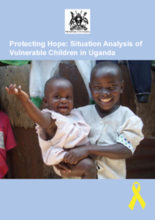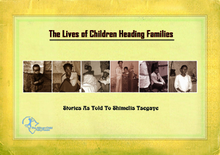Displaying 561 - 570 of 665
This report presents the findings of a regional study on children’s participation in Southern Africa.
Global policy makers are advocating that institution-living orphans and abandoned children (OAC) be moved as quickly as possible to a residential family setting and that institutional care be used as a last resort.
Collection of abstracts from conference presentations
This article is based on information collected about the situation of double orphans who are heading households in Rakai District, Uganda.
This study uses recent data from published studies in sub-Saharan Africa to illustrate deficits and document community responses for children who have lost parents to the HIV/AIDS pandemic.
This report is the result of a workshop held with a group of young care-leavers drawn from ten different charitable children’s institutions or rehabilitation centres and of a questionnaire carried out on the young care-leavers.
In 2001 the Republic of Uganda's Ministry of Education and Sports (MoES) issued the Basic Requirements and Minimum Standards Indicators for Education Institutions (BRMS) to schools and other relevant stakeholders to guide the organization and management of educational institutions. This BRMS has been reviewed by a multi-sectoral team comprising of members from the public and private sectors, development partners, international and national NGOs and other organizations.
This study explored the experiences of orphaned children who specifically take on the role of being both mother and father to their siblings.
The Situation Analysis aims to increase the understanding of the scope of the problem of vulnerable children and the response to it, including the full spectrum of core services, in order to facilitate country-wide planning and to inform current and future programming efforts.
Developed while researching child-headed households in five Ethiopian towns and their rural surroundings, this book presents the experiences and stories of individual child household heads.

